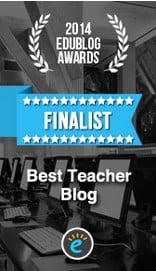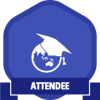Highlights from Akdeniz University Language Studies Conference 2012
Akdeniz University hosted the “Language Studies Conference” between 9-12 May with the participation of more than 600 participants from a variety of countries involving Turkey, Macedonia, Iran, and Germany. More than 300 presentations were given and we had the opportunity to participate in many informative sessions and listen to the reports of educational research. The confernece was organised around a variety of topics.
I shared the results of a small scale research study which was about participation of students in course evaluation.
It was entiled “Using students’ evaluations to measure educational quality” and data was collected by Students’ Evaluation of Educational Quality Instrument (SEEQ), focus group interviews and field notes.
If you would like to have more detailed info please click here.
I had the opportunity to listen to some very interesting sessions and meet devoted professionals. I would like to talk about Veronika Kareva, who presented a research study focsuing on teacher education and CELTA training.
I don’t know if you would agree with me but, I feel that learning about teaching and teacher education in different social contexts is very mind opening. Therefore, I asked Veronica if she would feed us in about ELT in Macedonia. She kindly accepted to answer my further questions send throgh e-mail.
Could you please introduce yourself?
My name is Veronika Kareva, Director of the Language Center at the South East European University (SEEU) in Tetovo, Macedonia and a professor at the English Teacher Training Department with the Faculty of Languages, Cultures and Communication.
What are the opportunities for teacher training and development in Macedonia?
Our University has only English Teacher Education Program. Speaking about this program, the impressions from students and the perceptions from those involved in the teaching process are that there is not enough practical implementation of the knowledge students-teachers receive during their formal education and that they are not prepared well enough to start teaching at schools immediately after graduation. This is especially true, with the new model of studies, 3 + 2, according to Bologna agreement.
After graduation, those teaching at state schools receive further continuoustraining through different seminars and workshops organized by the Ministry of Education and supported by the British Council.
You made a comment about how people view ELT profession in your country and therefore I would like to ask: What’s the society’s perception of English language teaching and ELT teachers in Macedonia?
Traditionally, English teachers have had higher status in the society compared to other teachers. This was due to the fact that their education required visiting foreign countries and contacts with the international community and somehow this program used to be elitist, as it was very difficult to enroll at university and graduate from the English Department.
Nowadays, with the massivization of the education in Macedonia (secondary school made obligatory and about 85% of the total number of pupils finishing secondary education enroll at universities), there is a hyper production of English teachers and it results in lowering their status and position in society.
In your opinion what should be done to improve teacher training and development in Macedonia?
As I mentioned previously, there is a need for providing more and better organized opportunities for practical work before graduation.
Can you please briefly talk about your research that you presented at Akdeniz University Antalya? What was the most significant finding in your study? Why?
My research presented at the Akdeniz Language Conference aimed at providing answers directly related to improving the practical component of the English Teacher Education. It dealt with the question whether introducing CELTA courses as obligatory courses in preparation of future English teachers would result in better learning outcomes. There were no statistically relevant findings in favour of this statement and therefore some other ways were recommended based on literature review in this field.
Thanks a lot Veronica :))
I think that the best part of attending conferences is enlarging the strong network that we teachers have…
Don’t you think so? 🙂


![IMG_0849[1]](https://aslisaglam.edublogs.org/files/2012/04/IMG_08491-2em60th-300x300.jpg)
![IMG_0759[1]](https://aslisaglam.edublogs.org/files/2012/04/IMG_07591-q8zl08-300x225.jpg)
![IMG_0842[1]](https://aslisaglam.edublogs.org/files/2012/04/IMG_08421-20k94y7-300x300.jpg)
![IMG_0508[1]](https://aslisaglam.edublogs.org/files/2012/04/IMG_05081-1oyamkb-300x225.jpg)
![IMG_0509[1]](https://aslisaglam.edublogs.org/files/2012/04/IMG_05091-13zadom-300x225.jpg)










Recent Comments